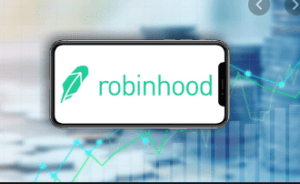In this Robinhood review article, we will be taking you through the world of Robinhood, which before now use to be at the top spots, because of its easy-to-use mobile app and $0 trades. Robinhood’s mobile app is an intuitively designed app that is quite great when it comes to usability.
Robinhood came on board in 2013 as an online broker that has raised about $539 million in venture capital funding. This app appeals primarily to young. Millennial do-it-yourself investors and is best. Known for offering $0 stock, ETF, options, and cryptocurrency trades alongside an easy-to-use. Website and mobile trading app.

Who Benefits the Most from Robinhood?
Newcomers investors who want to trade in. Small quantities will find Robinhood very useful. It also comes in handy for fractional. Shares and requires little in terms of research beyond. Seeing what others are trading. This app’s overall simplicity makes the app and website very easy to use and charging zero commissions appeals to extremely cost-conscious investors who mostly trade small quantities.
Advantages & Disadvantages of Robinhood
Advantages
- Firstly, Robinhood trading costs are quite low and cryptocurrency trades can be placed in small quantities.
- Secondly, the mobile app and website are very simple and easy to use.
- Also, customers are offered instant access to deposits and immediate access to funds after closing positions, and your buying power gets increased once you initiate a deposit into your account.
- Robinhood Gold which is the company’s program offers research and enables users to buy securities with borrowed money or margin. The company charges $5 a month for the program, which offers research on 1,700 companies from Morningstar, Nasdaq Level II quotes, and access to margin loans. Now, the subscription price includes the interest on your first $1,000 in borrowing, and subsequent amounts are charged a 5 percent annual rate. The broker gets to charge loan interest to your account every 30 days. If you happen not to have cash in the account to pay the monthly fee, it is rolled into your margin balance. However, potential borrowers are to note that any margin account must have at least $2,000 in it, per industry rules.
Disadvantages
- Robinhood trades tend to be routed to generate payment for order flow, which is not the best practice.
- Quotes do not stream, and get delayed a bit.
- Very little research or resources available.
Usability
When it comes to ease of usability, Robinhood scores some point with its overall simplicity. Initially offered as a mobile app, followed by a website launch in November 2017, the Robinhood app and website are quite similar in look and feel, which makes it easy to use. The only disadvantage, being that there is very little that you can do when it comes to customizing or personalizing the experience. Users can open and fund a new account on the app or the website within minutes.
When you log in, the opening screen is a line chart which displays your portfolio value, even though it lacks descriptions on either the X- or Y-axis. You can linger your mouse over the chart, or click a spot if you are on your mobile device, to see the time of day for each data point.
An order ticket gets displayed, whenever you are looking at a particular stock, option, or crypto coin. Understand also, that all the asset classes available for your account can easily be traded on the mobile app and the website, and watch lists are identical across platforms.
Offerings
With Robinhood, you can trade cryptocurrencies in the same account you use for equities and options, which is unique, but missing quite a few asset classes, like fixed income. Investors who use Robinhood can invest in the following:
- No mutual funds, fixed income, futures, or futures options.
- Simple as well as multi-leg options
- Fractional share trading in almost 7,000 stocks and ETFs
- Stocks: Long only, with no short selling and no OTCBB (penny stocks).
- Cryptocurrency: Bitcoin (BTC), Bitcoin Cash (BCH), Bitcoin SV (BSV), Dogecoin (DOGE), Ethereum (ETH), Ethereum Classic (ETC), Litecoin (LTC). Data is also additionally available for ten other coins.
Costs
Robinhood has easy to describe fees, and there are also some other fees unrelated to trading that we will be listed below.
- Account transfer fee – $75
- Check fees – $35 to send a domestic check overnight
- All equity trades (stocks and ETFs) come commission-free
- Live broker fee – $10 per transaction, even though it’s not obvious how to contact a broker.
- Exercise and assignment fee is $0
- Wire fees to send or receive: $25 for domestic wires, $50 for international.
- Trading on margin needs a Robinhood Gold subscription at $5 per month, which includes $1,000 of margin. Margin usage over $1,000 is charged 5% interest, which is quite low.
- Options trade for $0-no pre-registration fee and no per-contract fee.
Conclusion
Even though Robinhood is not perfect, investors who. Know what they want, and how Robinhood can fit into what they want. Can overlook the faults in this service and in exchange, take advantage of the. Chance of making a free trade.
Understand that free trading can be awesome. For beginners because it enables them to roll up their investing returns faster.
Thus if you want more support, research and education, and can’t find these tools somewhere else, You can leverage Robinhood, to get your trades executed.
from WordPress https://ift.tt/3lLxQY5
No comments:
Post a Comment